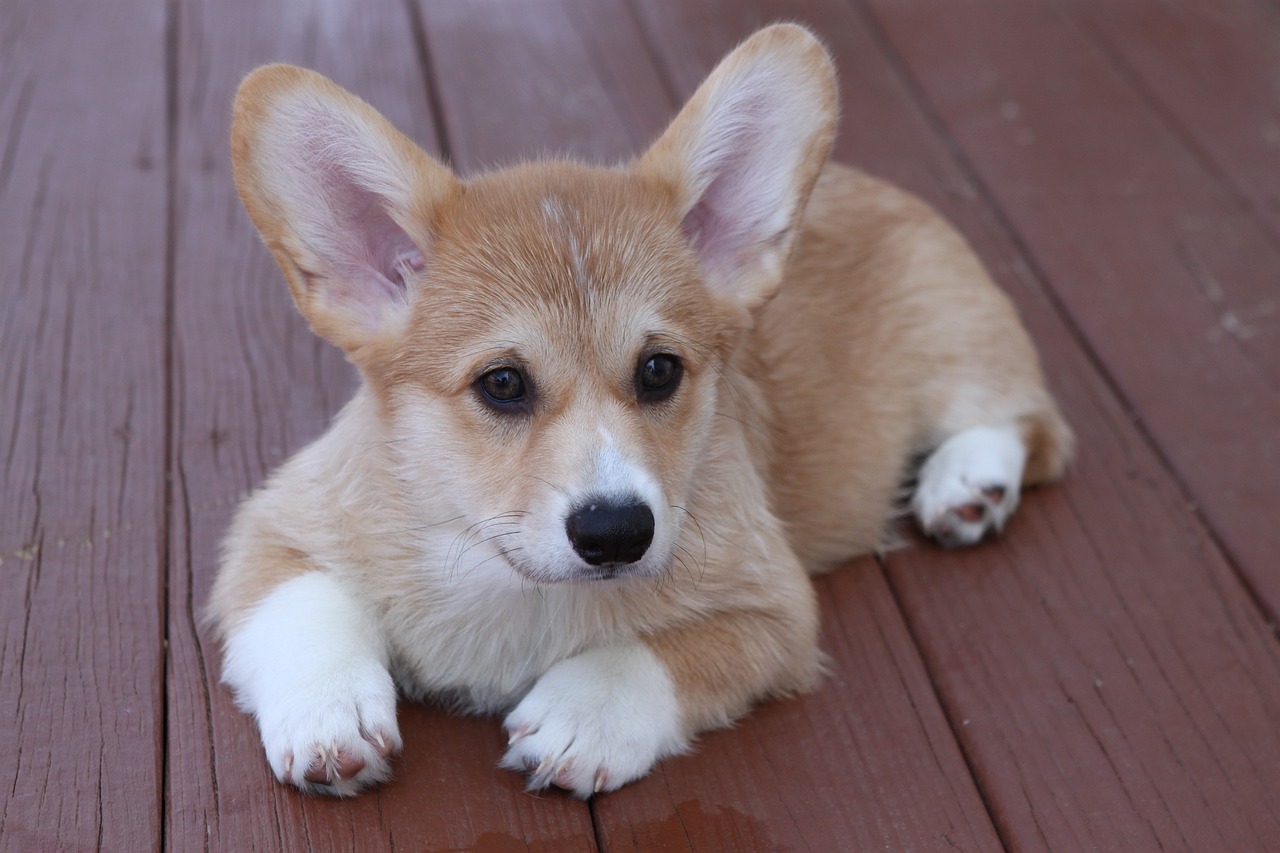
Corgis, with their distinct appearance and vibrant personalities, has captured the hearts of many dog enthusiasts worldwide. As you dive into the world of these charming dogs, you’ll discover a rich tapestry of history, quirks, and fun facts. Here are 20 entertaining tidbits about Corgi puppies that might surprise even the most devoted Corgi admirer.
1. Corgis are of royal pedigree
Queen Elizabeth II received her first Corgi named Dookie as a child and has since had over 30 Corgis during her reign. These dogs have lived a life of luxury at Buckingham Palace, often traveling with the Queen and even making appearances at special events.
2. There are two distinct Corgi breeds
While many recognize the Pembroke Welsh Corgi, there is also the Cardigan Welsh Corgi. The primary difference lies in their tails: Pembrokes typically have shorter tails, while Cardigans boast a long, bushy tail.
3. Corgis have a folklore origin
According to Welsh folklore, Corgis were the preferred mounts of fairy warriors. It’s said that the markings on a Corgi’s coat are from fairy saddles and harnesses.
4. They are herding dogs by nature
Despite their small stature, Corgis were initially bred for herding cattle. Their low-to-the-ground build allowed them to nip at cows’ heels and dodge kicks efficiently.
5. Corgis are surprisingly fast
Don’t be fooled by their short legs. Corgis can be quite agile and speedy when they want to be, making them adept competitors in dog agility courses.
6. They have a “Corgi sploot”
One adorable Corgi trait is the “sploot,” where they lie down with their hind legs stretched out straight behind them. It’s a quirky and endearing position unique to the breed.
7. Corgi means “dwarf dog” in Welsh
The name “Corgi” originates from the Welsh words “cor” (dwarf) and “gi” (dog), perfectly capturing their compact stature.
8. They are vocal communicators
Corgis have a range of barks, growls, and whines to communicate their feelings and intentions. This vocal trait makes them excellent watchdogs, alerting owners to any unfamiliar happenings.
9. Corgi puppies are born with floppy ears
While adult Corgis are recognized for their erect ears, their puppies are born with floppy ones. Over time, as the puppies mature, their ears stand upright.
10. They are incredibly expressive
With their large ears, expressive eyes, and vocal tendencies, Corgis can convey a wide range of emotions, from curiosity to contentment.
11. Corgis have double coats
This breed boasts a thick undercoat and a longer topcoat, requiring regular grooming, especially during their shedding seasons.
12. They thrive on human companionship
Corgis are known to form strong bonds with their human families. They love being involved in family activities and often want to be the center of attention.
13. Corgis are intelligent and trainable
These dogs are smart, which means they can pick up on commands quickly. However, their intelligence also means they can be a bit stubborn at times.
14. They have a love for food
Corgis are known for their healthy appetites, which can lead to overeating. Owners should monitor their food intake to prevent obesity.
15. Corgis have made their way into pop culture
From movies to TV shows, and even social media platforms, Corgis have made quite a splash in pop culture, further cementing their popularity.
16. They are sensitive by nature
Corgis can be quite sensitive and often pick up on their owner’s emotions. They thrive on positive reinforcement and consistent training methods.
17. They have a playful side
Corgi puppies are particularly playful, often chasing after toys, engaging in tug-of-war, or simply romping around with their owners.
18. Corgis can be great apartment dogs
While they do have energy to burn, with proper exercise, Corgis can adapt well to apartment living due to their size.
19. They have an ancient lineage
Corgis have a long history, with roots that can be traced back over a thousand years, making them one of the oldest dog breeds.
20. Their popularity continues to rise
With a blend of charm, intelligence, and playfulness, Corgis continues to rise in popularity as a preferred breed worldwide.
Conclusion
Whether you’re a seasoned Corgi owner or just discovering this delightful breed, there’s no denying the unique allure of the Corgi puppy. Their rich history, combined with their infectious spirit, ensures that Corgis will remain beloved members of the canine community for years to come.
Frequently Asked Questions About Corgi & puppies

1. What’s the difference between a Pembroke Welsh Corgi and a Cardigan Welsh Corgi?
Pembroke and Cardigan Welsh Corgis are two distinct breeds. The primary difference lies in their tails and size: Pembrokes typically have shorter tails and are slightly smaller, while Cardigans boast a long, bushy tail and are a bit larger. Additionally, their ear shapes differ, with Cardigans having larger, more rounded ears compared to the Pembrokes.
2. How much exercise do Corgis need?
Corgis are active and energetic dogs that require regular exercise to keep them happy and healthy. A daily walk, combined with some playtime or training sessions, is typically sufficient. However, they also enjoy more strenuous activities like herding or agility courses.
3. Are Corgis good with children and other pets?
Corgis are generally good with children and can be sociable with other pets. However, due to their herding instincts, they might try to herd young children or smaller animals. It’s essential to supervise interactions and train your Corgi to behave appropriately.
4. How often do Corgis shed?
Corgis have a double coat and are known to shed year-round, with more intense shedding sessions typically in the spring and fall. Regular grooming, including brushing several times a week, can help manage and reduce the amount of loose fur.
5. Are Corgis easy to train?
Corgis are intelligent and eager to please, making them relatively easy to train. However, they can also be somewhat stubborn, so consistent training methods and positive reinforcement are key to successful training sessions.
6. What health issues are common in Corgis?
Corgis, like many breeds, can be prone to certain health issues. These can include hip dysplasia, progressive retinal atrophy, and some cardiac issues. Regular vet check-ups and a healthy diet can help catch and manage potential problems.
7. How long is the average lifespan of a Corgi?
A well-cared-for Corgi can live anywhere from 12 to 15 years on average. Like all breeds, their lifespan can be influenced by factors like genetics, diet, exercise, and regular veterinary care.
8. Do Corgis bark a lot?
Corgis are known to be vocal dogs. They might bark to communicate, alert their owners to strangers or unusual sounds, or simply out of boredom. Proper training and socialization can help manage excessive barking.
9. Is a Corgi a good apartment dog?
While Corgis are active, with proper exercise, they can adapt well to apartment living due to their size. It’s essential to provide them with daily walks and play sessions to keep them content in smaller spaces.
10. What do Corgis eat?
Corgis should be fed high-quality commercial dog food appropriate for their age, size, and activity level. Because they love food and can be prone to obesity, it’s important to monitor their portions and avoid overfeeding. Treating them occasionally is fine, but always be aware of foods that are toxic to dogs.
The post 20 Fun & Fascinating Facts About Corgi Puppies appeared first on iHeartDogs.com.
via Whisker Therapy